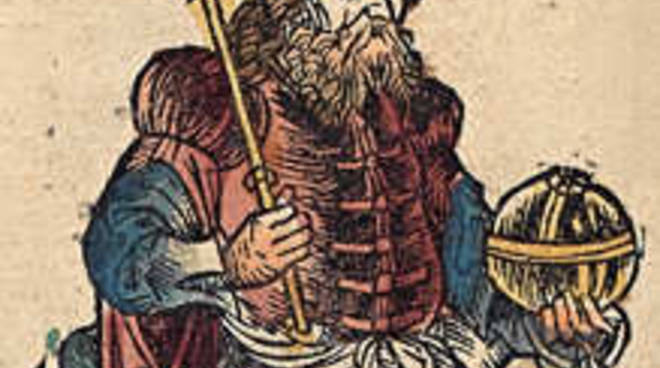Discovering Positano. Le battaglie contro i Longobardi. VIDEO
Più informazioni su

Oggi 11 maggio, Discovering narra le vicende precedenti alla costituzione del Ducato di Amalfi.
Dal VII secolo Amalfi e le sue frazioni si stavano affacciando sul palcoscenico europeo e mediterraneo, quali borghi marinari con una spiccata tendenza per i traffici commerciali e man mano col passare del tempo divennero prede appetibili per i Longobardi. Il disegno politico di questi ultimi era quello di conquistare tutto il Sud Italia peninsulare, ma essi cercavano principalmente il pretesto per attaccare solo il Ducato di Napoli, che comprendeva anche il territorio amalfitano. Questo Ducato, ricordiamolo, era uno Stato di dominazione indiretta bizantina, quindi aveva una sua indipendenza politico – militare nei confronti di Costantinopoli. I Longobardi, poi, preferivano combattere i Napoletani piuttosto che il Catepanato d’Italia, che era un dominio diretto bizantino su alcune zone della Puglia, della Basilicata e della Calabria, per non scontrarsi frontalmente con l’esercito proveniente dall’Oriente. Ma ancora più temibile dell’esercito bizantino era quello arabo; infatti in Sicilia c’era il potente emirato arabo, che i Longobardi non vollero inimicarsi.
La goccia che fece traboccare il vaso, come si suole dire, fu un evento che avvenne nel 786: gli Amalfitani si impossessarono di alcuni territori beneventani, durante il governo del Duca di Benevento Arechi II. Alla richiesta del Duca di restituire le terre, gli Amalfitani si opposero ed allora Arechi II, essendo mosso dallo sdegno, piombò su Amalfi dopo aver unito un esercito numeroso. Gli Amalfitani resistettero strenuamente con una tempesta di pietre e dardi, ma, non potendosi più difendere dai Longobardi, chiesero soccorso al Duca di Napoli Stefano II, il quale inviò suo figlio Cesario (che gli era associato al trono), con una buona armata. La battaglia inizialmente sembrò favorire i Longobardi, che erano molto forti dal punto di vista fisico e nel combattimento frontale. Il sopraggiungere di Cesario, dotato di ottime capacità strategiche, prese i Longobardi ai fianchi e, dopo averne uccisi molti, li costrinse ad una fuga precipitosa. Cesario, poi, vietò ai suoi uomini di inseguirli ulteriormente. L’anno successivo ci fu la pace tra i due duchi, Arechi II e Stefano II, ma, sebbene il Duca beneventano mantenesse la sua signoria, rimase sottomesso all’autorità dell’Imperatore bizantino.
Dopo 52 anni, nell’838 un successore di Arechi II, Sicardo, senza alcun preavviso, piombò su Amalfi con il suo esercito e la conquistò, senza spargimento di sangue. Gran parte della popolazione venne deportata a Salerno (dominio longobardo) con la presunzione di fare di Amalfitani e Salernitani un solo popolo, affinché i Longobardi procreassero dei figli che avessero nel loro DNA le virtù degli Amalfitani, esperti nelle attività nautiche e nel commercio.
La crudeltà di Sicardo, però, era eccessiva anche per il suo stesso popolo. E così Beneventani e Salernitani decisero di sbalzarlo dal suo governo. Ai suoi misfatti si aggiunse la superbia di Adelgisa, sua moglie, che, dopo esser stata vista casualmente nuda, per vendetta, fece esporre al pubblico molte matrone beneventane dopo averle fatte denudare. I Beneventani non tollerarono l’affronto di Adelgisa, e deliberarono che Sicardo fosse ucciso. Il Duca, infatti, cadde per mano di un tale Naningone, la cui moglie era stata violata dallo stesso Duca. Eliminato il Duca, i deportati amalfitani, dopo aver saccheggiato Salerno nell’agosto 839, si imbarcarono per Amalfi e ritornarono con sommo giubilo in patria carichi di ogni cosa. Sulla scia di quest’entusiasmo, il primo settembre 839, approfittando anche della debolezza dell’Imperatore bizantino Teofilo, elessero Prefetto un tal Petrus (per la prima volta senza coinvolgere Napoli), in tal modo proclamandosi Repubblica indipendente: era nato il Ducato di Amalfi, la prima Repubblica marinara della storia.
Nel prossimo articolo parleremo dell’importanza e del valore di questo Ducato, di cui Positano fu parte integrante, in tutta l’Europa.
Il video “I Longobardi” è sul canale Youtube Positanonews tv.
Gennaro Cuccaro, Associazione Positano Arte e Cultura.
Today, on May 11, Discovering narrates the events prior to the establishment of the Duchy of Amalfi.
From the seventh century Amalfi and its fractions were emerging on the European and Mediterranean stage , such as fishing villages with a marked tendency for commercial traffics and as time goes on they became attractive preys for the Longobards. The political design of these last was to conquer the whole of South peninsular Italy, but they were seeking mainly a pretext to attack only the Duchy of Naples, which also included the territory of Amalfi. This Duchy, we remember this, was a state of indirect Byzantine domination, then had its political independence – military towards Constantinople. The Longobards, then, preferred to fight the Neapolitans rather than the Catepanate of Italy, which was a direct rule of the Byzantine Empire on some areas of Puglia, Basilicata and Calabria, to not clash head-on with the army from the East. But even more formidable of the Byzantine army was that Arabic; infact in Sicily there was the powerful Arab emirate, which the Longobards didn’t want to antagonize.
The straw that broke the camel’s back, as the saying goes, was an event that took place in 786: the Amalfitans took possession of some territories of Benevento, during the rule of the Duke of Benevento Arechi II. At the request of the Duke to return the land, the people of Amalfi opposed and then Arechi II, being moved by indignation, fell upon Amalfi after combining a large army. The Amalfitans resisted strenuously with a storm of stones and darts, but because they can’t no longer defend by the Longobards, asked aid to the Duke of Naples Stephen II, who sent his son Cesario (that was associated to the throne), with a good army. The battle initially seemed to favor the Longobards, who were very strong from the physical point of view and in frontal combat. The arrival of Cesario, equipped with excellent strategic skills, took the Longobards to the sides and, after having killed many persons, forced them to a stampede. Cesario, then, forbade his men to pursue them further. The following year there was peace between the two dukes, Arechi II and Stephen II, but, although the Duke of Benevento keep his lordship, remained submissive to the authority of the Byzantine Emperor.
After 52 years, in 838 a successor of Arechi II, Sicard, without notice, swooped on Amalfi with his army and conquered it without bloodshed. Much of the population was deported to Salerno (Longobard dominion) with the presumption to do Amalfitans and Salernitani one people, so that the Longobards would procreate children who have in their DNA the virtues of Amalfi, experts in nautical activities and trade. The cruelty of Sicard, however, was excessive also for his own people. And so Beneventans and Salernitans decided to make go away by his government.
To his misdeeds was added the pride of Adelgisa, his wife, who, after being seen naked accidentally, in revenge, made exhibit to the public many matrons of Benevento after having stripped them. The Beneventans did not tolerate
the affront of Adelgisa, and consulted that Sicard was killed.
The Duke, in fact, was killed by a certain Naningone, whose wife had been violated by the Duke. Eliminated the Duke, the deportees of Amalfi, after having sacked Salerno in August 839, embarked for Amalfi and returned with great jubilation at home loaded of everything. In the wake of this enthusiasm, on September 1st of 839, taking advantage also of the weakness of the Byzantine Emperor Theophilos, elected Prefect such a Petrus (for the first time without involving Naples), thereby proclaiming itself an independent republic: was born the Duchy of Amalfi, the first maritime republic of the history.
In the next article we will talk about the importance and value of this Duchy, of which Positano was integral part Positano, in all Europe.
Video “I Longobardi” is on Youtube channel Positanonews tv.
Gennaro Cuccaro, Association Positano Arte e Cultura.








